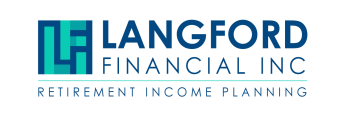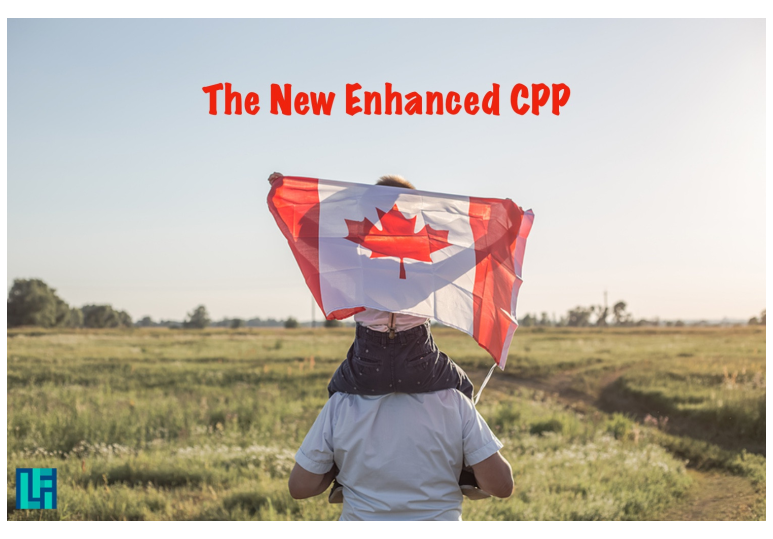Talking about life insurance is as exciting as a trip to the Dentist. At least at the Dentist, you get to go home with a new toothbrush. Insurance isn't that important until you need it. If you don't have it when you need it, it is too late to get some.
At Langford Financial Inc, we look after many life insurance policies that cover the lives of a lot of individuals. Sometimes we have death claims every week of the month and can say that all of the claims we have submitted on behalf of loved ones have paid out rather quickly, usually within 2 weeks, once all of the documents are received by the life insurance company. We have delivered millions of dollars in death claim cheques in the past few years, some small and some large.
Because we deal with so many types of policies from so many different insurance companies, we see all kinds of mistakes that people have made with their life insurance purchases - most were completely avoidable and can be fixed with proper planning.
I'll go over 10 in this post. When I first sat down to write this blog I thought I would have 6 or 7 mistakes to talk about, but I easily came up with 10.
1. Probably the biggest mistake people make is not reviewing their Insurance on a regular basis (every 5 years).
If you are like most people, your financial needs are always changing. Getting married or divorced. New children being added to the family. Starting a new job or moving to a new city. Change in salary. Selling a home and moving to a bigger or smaller one. Adding or reducing debt. All of these events will affect the amount and type of insurance you need. We often have clients that have too much insurance and others with too little and the wrong type. The first thing we do is calculate how much insurance should you have? We determine this by doing a "Needs Analysis".
A responsible person doesn't want to die and leave their financial problems/debts to someone else. Who will pay off your mortgage, provide for your children's well being and education? How will your spouse be cared for?
Nothing screams "irresponsible" like hearing someone has to start a "go fund me" campaign for a young family because one of the parents died with no life insurance in place.
How much do you need? You need enough insurance to pay off your mortgage/debts, replace your income until your children are adults, provide an education fund, cover final expenses, and potentially leave a legacy.
"The reason life insurance is so important is that no one gets out alive"
2. Not updating beneficiaries.
I remember calling a client once to discuss his policy. He was horrified to discover that his beneficiary was his ex-wife, with whom he had been divorced for 20 plus years. Imagine how his current wife would feel if he passed away and his insurance money went to his Ex? Not the legacy anyone wants to leave.
Another common mistake is where a young guy has named his mother the beneficiary of his policy and then gets married, but doesn't change the beneficiary designation. We have seen this happen - where the young husband has unexpectantly died and his mom was the beneficiary on his policy and his mother was no longer alive.
Imagine another scenario: you name your 2 sons as the beneficiary on your policy and one of the sons pre-deceases you. Who gets your insurance proceeds upon your death? If you did not name a contingent beneficiary your lone surviving son will get all of the proceeds. However, is that your intention? Perhaps you wanted your deceased's son's wife and your grandchildren to receive his share of the proceeds.
On a side note, naming too many beneficiaries can be a problem, because each beneficiary must make their own claim and if those individuals are spread all over the globe, it can pose a big problem to get everyone's signed claim form. If you want to leave money to multiple people it is better to direct the proceeds to your estate and then direct the funds to your beneficiaries via your will. Keep in mind that the proceeds of life insurance paid to your estate are subject to creditors and probate fees.
3. Not shopping for a new price.
Term insurance pricing has come down significantly over the past 3 years because the mortality charts have been updated and people are living longer, which reduces the risk to the insurance company so they have lowered the cost of premiums. In addition, pricing has become more competitive among companies. We have regularly priced out new premiums for clients where they were several years into a term policy and a new policy was cheaper.
Keep in mind that your health has to be good with no significant changes in order to qualify, but it costs you nothing to put in a new application. The one downside to a new policy is that you reset the 2 year contestability period of the policy which has an exclusion for suicide in the first 2 years. Also, if you are under 40 and getting $500,000 of coverage or less, there is often no need for a visit from the nurse to poke and prob.
4. Letting Automatic-renewals happen.
Term insurance is typically sold in 10, 20, or 30-year terms. The premium is locked in for the term and then automatically renews for another term at a MUCH higher premium AUTOMATICALLY. A Term 10 policy is always the lowest cost of insurance for the first 10 years, however, if you need insurance for more than 10 years it can quickly become the most expensive insurance over a 20 or 30 year period. The insurance company charges a higher price as they are providing you with insurance for another term without any additional medical underwriting. It is always cheaper to submit a new application than it is to allow your insurance to auto-renew. However, your health has to be good and stable so you can qualify.
5. Multiple lives on one policy.
This strategy is often used by families to provide coverage for mom and dad and the kids, as a 'multi-life' policy saves some money on the annual policy fees that insurance companies charge, but it can create a whole lot of issues as everyone on the policy becomes an adult. When mom and dad die, who owns the policy? Who's responsibility is it to pay for the policy? What if the adult kids are now living in 3 different countries? Who are the beneficiaries? The cleanest and easiest solution to have everyone on their own individual policy. Having married couples on one policy is also not a good idea in case of a future divorce.
If you have one of these policies it is advisable to separate out each person on to their own policy. Mom and dad can still pay for the policy or they can assign it (give it away) to each adult child as they see fit. There are 3 distinct benefits of having insurance for children.
- It guarantees insurability in case of health issues.
- It places very inexpensive insurance on the child for life.
- The child has the option to increase that insurance face amount without proof of insurability at various age intervals, usually age 21, 25, and 30. Read more about insuring children.
6. Not naming a contingent owner or beneficiaries.
This is especially important if the policy has more than one person insured on the policy. Let's say the parents have an insurance policy for themselves and they have insurance for their children as well - all under the same policy. If, and when the parents pass away - who now owns the policy? The estate now owns the policy and it will have to be determined by the will who takes ownership. This can be a complicated process and a hassle for the executor of the estate, especially if some of the children insured on the policy live out of the country or do not want to own the policy.
Another example is when a parent owns a policy on their adult child. If the parent passes away, it would be best if the policy's contingent owner is the adult child, who can then decide if they want to keep the policy and pay the premiums.
7. Buying the wrong type of permanent insurance.
There are 2 types of insurance: Term insurance, which is the simple kind - you pay a set premium for a set term and if you die during the term, the policy pays a death benefit to your beneficiary. Permanent insurance, on the other hand, is way more complicated. The term is for life and as long as the policy is in force with premiums being paid on time, your policy will pay out upon your eventual death.
There are 2 main types of permanent insurance that I'll try to quickly explain:
- Whole Life. This is insurance for your whole life and as long as you pay your premiums on time, you have a policy that will pay out upon your death. There's a unique feature within these policies as the company pays dividends to your policy on an annual basis. The longer you have the policy in force and pay your premiums the more cash value grows inside the policy. These policies can be set up in such a way so that the policy is fully paid for in 20 years. We have hundreds of these policies and rarely ever have a complaint. Keep in mind that dividends are not guaranteed and have been declining over the past 30 years.
- Universal Life. This is similar to whole life, with the exception of the investment portion of the policy. Instead of receiving dividends from the insurance company, you have to choose an investment option ranging from a guaranteed investment account like a GIC or choose from a selection of funds that trade on a public stock market. Your premiums are set at a minimum and a maximum as per the Canada Revenue Agency. If the fund value in your policy does well you can eventually use the cash value to generate enough income each year to pay the insurance premiums. Universal life gives you more flexibility in your premium costs as opposed to whole life insurance, where the premium is set for the duration of the policy. These policies require a lot more attention than whole life policies, as you need to ensure that your selected funds are growing.
8. Missing conversion options.
This applies to Term insurance only, which generally has the feature built-in that allows you to convert your term insurance to a permanent policy. This is a great feature, however, it comes with an expiry date, usually age 65, 70, or 75. Term insurance also has an expiry date at which time the policy ends with no options left. It's important to review your policy each year to ensure you can take advantage of any time-limited options.
9. Canceling term insurance too soon.
The kids are all adults, you have no debt and you are about to retire - why do you need insurance any longer? Here's why you should consider keeping some of your insurance:
- Funeral costs. Life insurance is by far a less expensive option for paying your funeral costs than buying a final expense plan from a funeral home. What if you die while on vacation in another country? The funeral home isn't going to pay for you to get back to your hometown.
- Estate liquidity: Sure there may be money in the bank and value in the family home, however, these assets can be frozen when someone dies and not be available until the executor has been named and the will has been probated. This can takes months to complete and sometimes years. How do you pay for the ongoing bills of the estate during that time? Life insurance can pay out within a week or two and provide the money necessary to keep things going.
- Taxes. This is the big one most people miss. Married people have an advantage where their assets can roll tax-free to the surviving spouse. However, single people and Widows can have a significant tax bill upon their death. All of your assets are deemed to be sold the day you die. If you have investments, rental properties or a business you can have a significant tax bill. Sure, you can use the proceeds of the sales to pay the taxes, or you can use life insurance, which is a tax-free benefit. One such policy for couples is to use a "Joint and Last To Die policy". Before you cancel your insurance determine if you should convert your term insurance to one of these policies.
10. Not understanding the policy loans and cash value.
Permanent insurance has the potential to grow a cash value inside the policy on a tax-sheltered basis. There's a minimum amount of premium for the policy and a maximum amount of premium that can be contributed, set by CRA. This cash value can be used, in the later years of the policy, to pay the insurance premiums. The cash value can be withdrawn and the policy canceled or the owner of the policy can access the cash value by way of a policy loan.
Because this cash value is allowed to grow inside the policy on a tax-free basis, you cannot just access it free of charge. The insurance company has to charge you interest according to the CRA rules. One way around this is to use the cash value as collateral and get a loan at any bank in Canada. You would be assigning the bank as a beneficiary of the policy to the amount of your loan. Upon your death, the loan would be paid back to the bank and the remaining funds paid to your named beneficiaries.
Conclusion
Life insurance is a valuable key to your financial health and well-being at every stage of life. It's important to review your policy often to ensure it's the right amount of coverage and the right kind of coverage for your current stage of life. We are more than happy to review your coverage with you over a 15-minute call, even if you are not a current client. We are not going to try and sell you more. Our intention is to determine how much insurance you need and ensure you are getting the best value for your money.
If you would like to meet with us to review your insurance plans, book time in our calendar for a meeting time.
Willis J Langford BA, MA, CFP
Nancy Langford CRS
Insurance, Investment & Retirement Planners
587-755-0159








